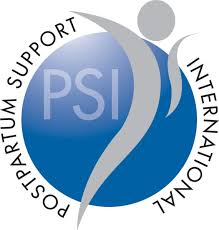Categories: Parenting, Pregnancy, Self-care
October 24, 2019
Last updated on October 24, 2019
Having a new baby…the happiest time in a woman’s life.
Not always.
1 in 5 women will experience anxiety or depression either during pregnancy or the first year of baby’s life. In fact, mental health issues like postpartum depression are the MOST COMMON complication of pregnancy and childbirth, turning joy into sadness, loneliness, confusion, regret, and guilt.
I experienced postpartum depression and anxiety after my son (the second of my three children) was born 17 years ago. We had a very scary C-section, he wanted to be held all the time and refused to take a bottle, and I was exhausted and overwhelmed as I struggled to care for a newborn and a toddler. I ran away from home; all I wanted was to find somewhere that I could sleep for a year or two. I told my husband I wanted a divorce, truly believing my family would be better off without me. Our little family struggled for six months until my husband finally found a doctor who understood what I was going through and started me on the path to recovery.
To all the new mothers who are struggling, please know that you are not alone, that you are not to blame, and that with help, you will be well. If you need help, contact Postpartum Support International (www.postpartum.net, 1-800-944-4773, text 503-894-9453). Specially-trained staff and volunteers can provide support and information about local resources.
Maternal mental health issues can occur any time during pregnancy or the first year postpartum and can include anxiety, depression, panic attacks, obsessive-compulsive disorder, post-traumatic stress disorder. Maternal mental health issues are bio-psycho-social illnesses, meaning that the root of the illness is often multi-factorial. It is crucial that a new mother (or pregnant woman) experiencing these illnesses understand that they are not her fault.

Symptoms of maternal mental health issues include those commonly associated with depression (feeling sad, hopeless, alone) and anxiety (feeling overwhelmed, worried, fearful). In addition, women experiencing maternal mental health issues often say they are exhausted but can’t sleep; feel like they are drowning; experience significant rage, often focused on their partner; feel like they are the worst mother in the world; and feel guilty for having these feelings. Many women have scary intrusive thoughts of hurting themselves or their babies. Please note that having thoughts does NOT mean that you are going to act on them.
It’s not just postpartum. It’s not just depression.
Some of the well-known risk factors for maternal mental health challenges include personal or family history of anxiety or depression; sensitivity to hormone changes; lack of social support, especially from partner; traumatic birth; and major life stressors such as a new job or financial stress or the illness or death of a loved one. Certain groups of women are at increased risk for experiencing mental health issues during the childbearing years, including women who are low-income women of color, have a baby in the neonatal intensive care unit, or have a previous experience with a maternal mental health issue.
You are not alone. You are not to blame. With help, you will be well.
Fortunately, maternal mental health issues are often temporary and treatable. The path to wellness includes a combination of self-care, social support, therapy, and medication.
1. Self-care. New mothers need to recover from the physical and emotional challenges of pregnancy and childbirth. Being a new mother, caring for a newborn, and maintaining home and family are challenging, especially if mom feels anxious or depressed. Moms should focus on:
- Sleep. Getting 4-5 hours of uninterrupted sleep is the most effective, least expensive thing a new mother can do to start feeling better. Brainstorm with partner, friends, and family how to maximize sleep. Note: sleeping too much or not being able to sleep when baby sleeps may be signs of more serious depression or anxiety.
- Nutrition. New moms should eat every time baby eats. Water and a high-protein snack (yogurt, cheese stick, nuts) are good mini-meals. Family and friends can stock a feeding station for mom and baby.
- Exercise. Gentle exercise – such as a walk around the block – can have terrific benefits. The combined effect of change of scenery, fresh air, Vitamin D from the sun, and endorphins released in the body can have a positive impact on mood.
- Time off. No other job is so demanding, requiring being on duty 24 hours/day, 7 days/week. New moms need time off to recharge and rejuvenate, especially if feeling overwhelmed. The challenge is to identify and meet those needs, whether it’s taking a shower, reading the newspaper, or talking with an old friend.
2. Social support. New moms often feel the need to connect with other new mothers, especially if experiencing anxiety or depression. Being at home with a newborn or young child can be socially isolating, compounding feelings of sadness. Peer support groups offer non-judgmental listening, support, and encouragement from others experiencing similar issues. Leaders of these support groups are caring, empathetic, and have survived these illnesses.
3. Talk therapy / counseling. New moms may need to address topics such as their role as mother, changes in relationships, and communications with partner. Talking with an objective third party – a social worker, psychologist, or professional counselor – can help put things in perspective.
4. Medication. Sometimes medication is needed to lessen anxiety or depression. Several medications commonly used to treat anxiety or depression are widely considered safe to use during pregnancy or while breastfeeding. These medications can be prescribed by primary care physicians, obstetrician/gynecologists, or psychiatrists.

How can you help someone struggling with a maternal mental health challenge? Here are a few ideas:
- ASK a new mom how she is doing. Really look her in the eye and ask about HER – not about the baby.
- NORMALIZE her experience. Let her know that she is not alone, that lots of women have a tough time in the transition to motherhood, and that help is available.
- HELP by offering to take the baby so she can take a nap, take a shower, or take a break. Do a chore: cook dinner, fold the laundry, do the dishes, walk the dog.
- CONNECT her with help. Tell her about Postpartum Support International, an organization with volunteers in all 50 states who provide support and resources. (postpartum.net, 1-800-944-4773, text 503-894-9453).
New mothers deserve to be happy and healthy. And happy, healthy moms make happy, healthy families.
Guest post written by Adrienne Griffen, MPP, Executive Director of the Maternal Mental Health Leadership Alliance (MMHLA.org), a nonpartisan nonprofit organization dedicated to promoting the mental health of childbearing women in the United States. Adrienne is also the founder of Postpartum Support Virginia (PostpartumVA.org).



